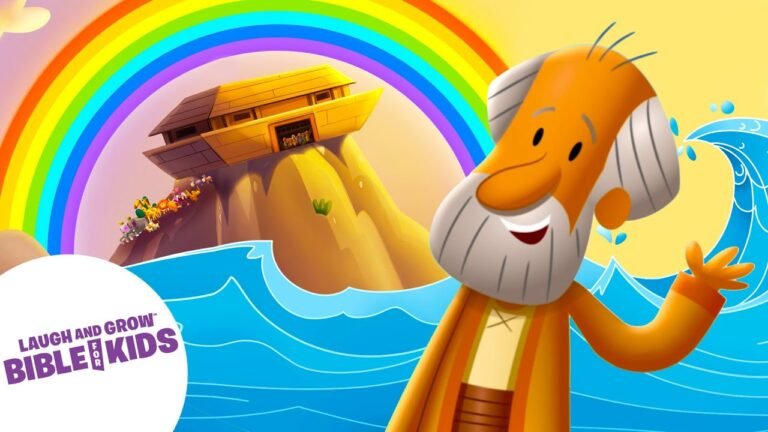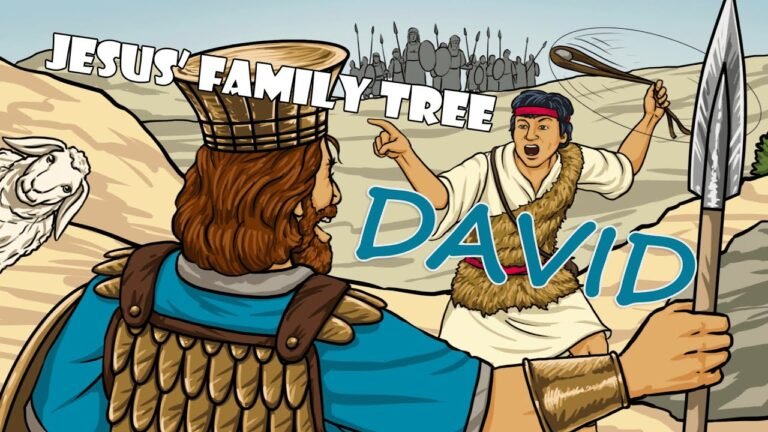Unveiling Noah: The Enigmatic Figure Behind the Name
In a world filled with intriguing personalities, the question Who is Noah? sparks curiosity and invites exploration. From ancient biblical figures to modern influencers, the name Noah resonates across cultures and time periods. This article delves into the multifaceted identity of Noah, uncovering his historical significance, cultural impact, and the diverse narratives that shape our understanding of this iconic figure. Join us as we unravel the layers of who Noah truly is and why he continues to captivate our imagination.
Who is the character Noah in the Bible?
Noah, a significant figure in the Bible, is introduced in Genesis 5:29 as the son of Lamech and the ninth descendant from Adam. His lineage highlights a pivotal moment in biblical history, where he emerges as a beacon of righteousness amidst a corrupt generation. This connection to the ancestry of humanity emphasizes his unique role in the divine narrative.
In the account of the Deluge, found in Genesis 6:11–9:19, Noah is portrayed as a paragon of virtue, chosen by God to ensure the survival of humanity. His unwavering faith and obedience led him to construct the ark, safeguarding his family and a selection of animals from the impending Flood. As a result, Noah not only symbolizes hope and renewal but also serves as a testament to the consequences of moral integrity in the face of widespread wickedness.
What actions did Noah take in service to God?
Noah’s unwavering dedication to God’s command is best exemplified by his monumental task of building the Ark. Despite the skepticism of those around him, he devoted himself to this colossal project, ensuring the survival of his family and the preservation of land animals during the cataclysmic Flood. His actions reflected a profound faith and obedience, standing as a testament to his character and commitment to divine instruction.
Through Noah’s labor, a new beginning was offered to humanity and creation itself. The Ark became a symbol of hope and redemption, showcasing how one person’s obedience can alter the course of history. In responding to God’s call, Noah not only safeguarded life from impending doom but also demonstrated the power of faith in action, inspiring future generations to trust in divine guidance.
What was the reason for God’s choice of Noah?
Noah was chosen by God for his exceptional character and unwavering faith. The scriptures highlight that Noah found grace in the eyes of the Lord, a testament to his righteousness in a world filled with corruption. His integrity and obedience set him apart, as he lived a life that honored God amidst societal chaos. This deep reverence for the divine compelled him to act on his faith, demonstrating a commitment to God’s will that resonated through generations.
In addition to his personal virtues, Noah’s role as a faithful messenger further underscored his selection. He not only upheld his relationship with God but also shared that faith with those around him, embodying a model of righteousness. By choosing Noah, God ensured that a new beginning could emerge from the flood, highlighting the importance of both individual character and communal responsibility in the divine plan.
Discovering the Legacy of Noah
Noah’s legacy transcends time, embodying themes of resilience, hope, and renewal. His story, rooted in ancient texts, captivates the imagination and invites reflection on humanity’s capacity for rebirth in the face of adversity. As a figure who navigated an overwhelming flood, Noah represents the enduring spirit of survival and the importance of faith, reminding us that even in our darkest moments, there is potential for a new beginning.
Exploring this legacy today reveals its relevance in our modern world, where challenges often seem insurmountable. Noah’s journey encourages us to embrace our responsibilities, fostering a sense of stewardship for both our environment and communities. By drawing inspiration from his tale, we can cultivate a collective mindset focused on hope and transformation, ensuring that the lessons of the past guide us toward a brighter future for generations to come.
The Mystique Surrounding a Timeless Name
In the realm of history and culture, few names evoke as much intrigue as that of Cleopatra. This legendary figure, often romanticized in literature and film, embodies a fusion of beauty, intelligence, and political acumen. Her reign as the last active ruler of the Ptolemaic Kingdom of Egypt marked a significant era, characterized by her strategic alliances and her ability to navigate the treacherous waters of power. Cleopatra’s story transcends time, capturing the imagination of countless generations who see in her both a powerful leader and a tragic heroine.
The allure of Cleopatra is further heightened by the mysteries that surround her life and death. From her famed relationships with Julius Caesar and Mark Antony to the whispers of her dramatic demise, the narratives woven around her have become the stuff of legend. Scholars continue to debate the true nature of her reign, exploring her role not just as a ruler but as a symbol of female strength and resilience in a predominantly patriarchal society. Each new discovery in archaeology and history adds layers to her persona, keeping the enigma alive and vibrant.
Ultimately, Cleopatra’s legacy is a testament to the enduring power of storytelling. Her life has inspired countless works of art, theater, and scholarship, each interpretation offering a new lens through which to view her complex character. As we delve into the historical records and artistic representations, we find that Cleopatra is not merely a figure of the past; she is a timeless name that continues to resonate in contemporary discussions about power, identity, and femininity. The mystique surrounding her is a reminder of how one person’s story can shape the course of history and capture the hearts of many.
Exploring the Stories of an Iconic Figure
Throughout history, certain individuals stand out not only for their achievements but for the stories that encapsulate their essence. One such figure embodies resilience, creativity, and the relentless pursuit of excellence. Their journey is not merely a timeline of events but a tapestry woven with challenges, triumphs, and moments of profound insight. Each chapter reveals a deeper understanding of their character, illustrating how their experiences shaped their vision and inspired countless others.
As we delve into the narrative of this iconic figure, we uncover the motivations driving their groundbreaking work and the obstacles they overcame along the way. From humble beginnings to monumental successes, their story resonates with universal themes of perseverance and passion. It invites us to reflect on our own journeys, encouraging us to embrace the challenges we face and to find inspiration in the stories of those who have forged paths before us.
Unraveling the Myths and Truths of Noah
Noah’s story has captivated hearts and minds for centuries, often shrouded in a mix of myth and reality. While many envision him solely as a figure of faith, the narrative reveals deeper themes of resilience, environmental stewardship, and humanity’s relationship with the divine. Contrary to popular belief, the tale transcends a simple flood narrative; it serves as a powerful metaphor for renewal and hope in the face of catastrophe. By examining the historical and cultural contexts surrounding Noah, we can uncover profound truths that challenge conventional interpretations, inviting us to reflect on our own responsibilities towards the world we inhabit.
The quest to uncover who Noah truly is reveals a multifaceted character shaped by history, culture, and personal experience. From his legendary status in religious texts to his modern-day interpretations, Noah symbolizes resilience and hope in the face of adversity. Understanding his story not only enriches our knowledge of ancient narratives but also invites us to reflect on our own journeys and the legacies we create. As we continue to explore the depths of his identity, we find that Noah’s influence transcends time, urging us to embrace our shared humanity.







